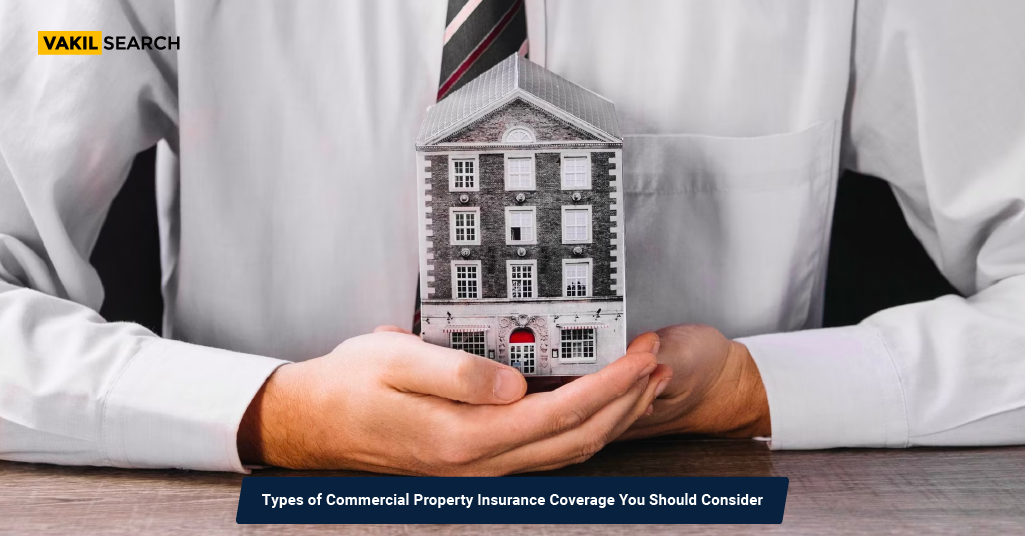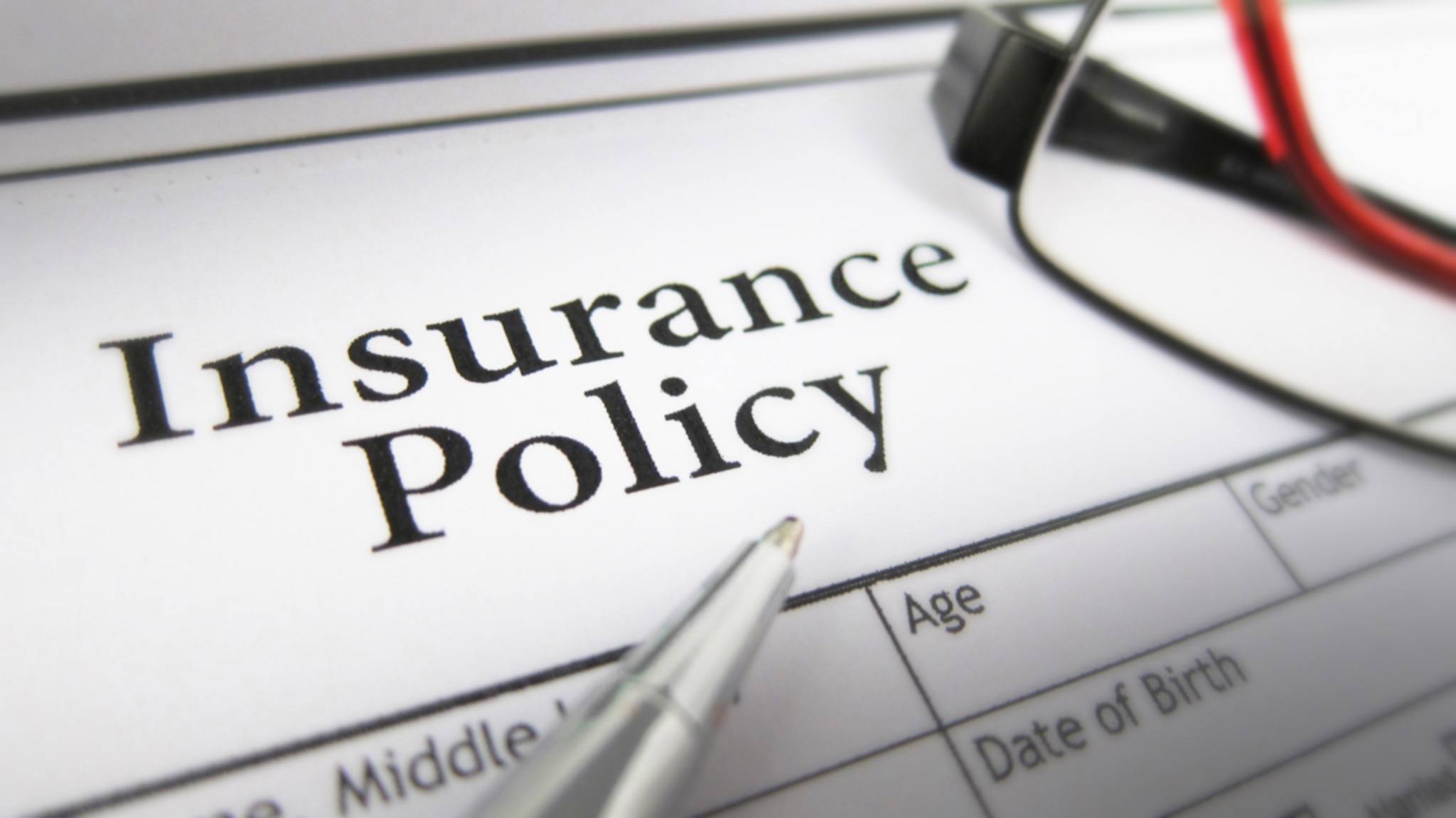Learn about the importance of commercial property insurance for small businesses and how it can protect your valuable assets. Selecting the right coverage is crucial to safeguard your business from unforeseen circumstances. Factors like property type, location, and coverage limits play a vital role in determining the level of protection you need. Understanding these aspects can help you make informed decisions to ensure comprehensive coverage for your small business.

Exploring Various Types of Commercial Property Insurance Coverage
Building Coverage
Commercial property insurance for small businesses typically includes building coverage, safeguarding the physical structure of your business location. This coverage extends to protection against perils like fire, vandalism, or natural disasters, ensuring repair or replacement costs are managed, helping you resume operations swiftly in case of damage. “Commercial Property Insurance Small Businesses” offers peace of mind in securing your business property.
Contents Coverage
In addition to building coverage, contents insurance shields your business equipment, inventory, and assets from risks like theft, fire, or damage. This ensures that essential tools, merchandise, and furnishings vital for your operations are included in the policy. By opting for “Commercial Property Insurance Small Businesses,” you guarantee comprehensive protection for your valuable resources.
Business Interruption Insurance
Business interruption insurance is a key component of commercial property insurance, covering the loss of income during a temporary closure due to covered perils. This coverage assists in compensating for ongoing expenses, payroll, and profits that may be impacted by a halt in business operations. Choosing “Commercial Property Insurance Small Businesses” secures your financial stability during unexpected interruptions.
Liability Coverage
Liability coverage under commercial property insurance shields your business against claims of bodily injury or property damage caused by your operations. This insurance covers legal fees, settlements, and medical expenses arising from such incidents. Incorporating “Commercial Property Insurance Small Businesses” in your risk management strategy ensures protection from potential lawsuits and financial liabilities.

Evaluating the Optimal Coverage for Your Business
When determining the right amount of coverage for your small business under Commercial Property Insurance, start by assessing the value of your property and assets. Comprehensive coverage should align with the replacement cost of your assets to ensure full protection in case of damages or losses. Understanding the value of what you’re insuring is key to adequate coverage.
Next, consider the unique risks and liabilities prevalent in your industry and location. Factors like natural disasters, theft, or vandalism can impact your property differently. Tailoring your coverage to address these specific risks can mitigate potential financial setbacks in the future.
To pinpoint the optimal coverage limits, seek guidance from an experienced insurance agent. They can conduct a thorough evaluation of your business needs and recommend appropriate coverage levels that suit your operations. Their expertise can help you navigate the complexities of commercial property insurance and make informed decisions.
Regular policy reviews are essential to ensure your coverage remains adequate as your business evolves. Periodically assessing your coverage in line with any expansions, acquisitions, or changes in asset value can prevent underinsurance scenarios. Stay proactive in keeping your policy updated to guarantee comprehensive protection for your small business.

Strategies to Lower Your Commercial Property Insurance Costs
Implement Security Measures
Enhance security by installing alarms, cameras, and access control systems to deter theft and vandalism, reducing insurance risks. Leveraging security measures signals a proactive approach to safeguarding your property and assets, potentially leading to lower premiums for your commercial property insurance.
Maintain Property Condition
Regular maintenance not only ensures a safe environment for occupants but also reduces the risk of potential damages. By upkeeping your property, you portray responsibility and care, which insurance companies appreciate, possibly resulting in lower premiums and fewer claims.
Improve Claims History
Preventable incidents like fires or water damage can impact your claims history and subsequent premiums. Implementing safety protocols, conducting regular inspections, and training staff on risk mitigation can help avoid costly claims, improving your insurance profile, and potentially reducing costs.
Negotiate for Discounts
Engage in open communication with your insurance provider to explore available discounts or opportunities for premium reductions. Demonstrating a commitment to risk management, proactive loss prevention, and a solid claims history can strengthen your position to negotiate lower premiums for your commercial property insurance.

Filing a Commercial Property Insurance Claim
When it comes to filing a commercial property insurance claim for your small business, prompt action is key. Report any incidents to your insurance company immediately to kickstart the claims process efficiently. This proactive approach ensures timely support to mitigate further damages and expedite your claim.
Documentation is vital when filing a commercial property insurance claim. Gather evidence to substantiate your claim, including photos, invoices, and any other relevant records. Detailed documentation strengthens your case and facilitates a smoother claims process, enhancing the chances of a successful claim settlement.
Cooperation with the insurance adjuster is crucial. By working closely with the adjuster assigned to your claim, you can provide essential information, answer queries promptly, and ensure a thorough assessment of the damages. This collaborative effort streamlines the process and helps in expediting the evaluation and settlement of your claim.
Tracking all expenses related to the claim is essential for reimbursement. Keep meticulous records of all costs incurred as a result of the incident, such as repairs, temporary relocations, or any other expenses. This documentation not only aids in the claim evaluation but also ensures you receive appropriate compensation for your losses.

Enhanced Coverage Options for Small Businesses
When it comes to commercial property insurance for small businesses, exploring specialized coverage tailored to unique needs is crucial. Consider options like cyber liability or equipment breakdown insurance to ensure comprehensive protection. These additional coverages can safeguard your business from specific risks that generic policies may not fully address, offering tailored solutions for enhanced security against unforeseen events. This strategic approach can provide targeted protection where your business needs it most, reinforcing your overall risk management strategy effectively.
Financial Assistance Opportunities for Insurance Premiums
Small businesses can benefit from exploring government programs or grants that offer financial assistance for insurance premiums. These initiatives aim to support small enterprises by easing the financial burden associated with insurance costs. By taking advantage of such programs, you can potentially lower your overall insurance expenses, making comprehensive coverage more accessible and affordable for your business. Researching available options can lead to valuable cost-saving opportunities, optimizing your risk management approach while maximizing financial efficiency.
Employee Education on Risk Management
Educating your employees about risk management and loss prevention is essential for ensuring a safer working environment and minimizing potential liabilities. By raising awareness about the importance of following safety protocols, maintaining security measures, and identifying potential risks, you empower your team to actively contribute to the protection of your business assets. Engaging employees in risk management practices fosters a culture of safety and accountability, ultimately strengthening your overall risk mitigation strategy and promoting a secure operational environment.